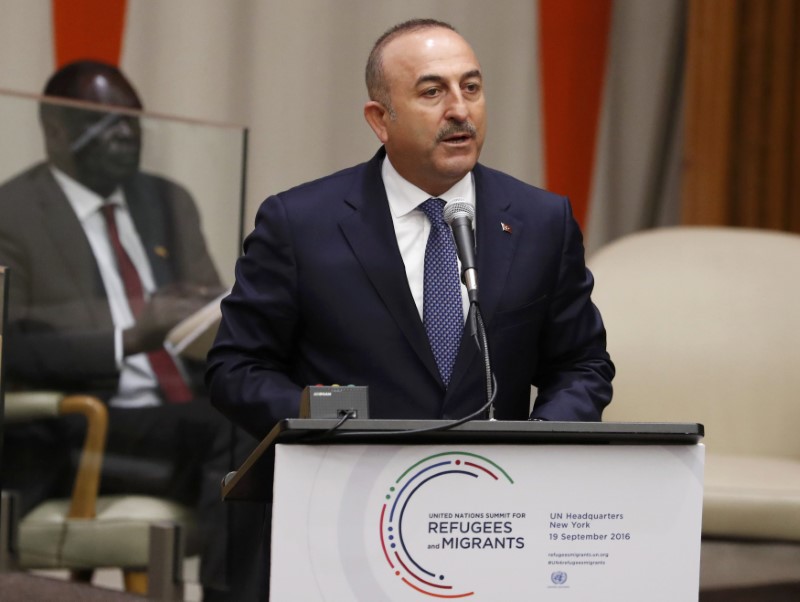ANKARA (Reuters) - Involving Shi'ite militias in an operation to drive Islamic State out of the Iraqi city of Mosul will not bring peace, Turkey's foreign minister said on Friday, adding that Turkish-trained forces should be involved.
As expectations of an assault to retake Mosul grow, tensions between Iraq and Turkey have escalated. The main point of contention is the presence of Turkish troops in Iraq, mainly at the Bashiqa camp in the north of the country, training Sunni Muslim and Kurdish Peshmerga units which Turkey wants to take part in the battle for Mosul.
However, the Shi'ite-led government in Baghdad is keen that its forces be in the forefront of the offensive on the city, the largest under Islamic State control.
"The forces we have trained at the Bashiqa camp are Mosul's own people. The participation of these forces is important to the operation's success," Turkish Foreign Minister Mevlut Cavusoglu told a news conference.
"Involving Shi'ite militias in the operation will not bring peace to Mosul. On the contrary, it will increase problems," he said, adding Turkey was ready to support the offensive.
Turkish Prime Minister Binali Yildirim added to Turkey's hardening rhetoric on the issue, saying Baghdad's remarks on the Bashiqa camp were "dangerous and provocative".
"Our troops are carrying out very useful work in Iraq. We have no hostile attitude towards them. Our soldiers are fighting against Islamic State militants there," he told reporters.
Turkey's parliament voted last week to extend the deployment of an estimated 2,000 troops across northern Iraq by a year to combat "terrorist organizations" - a wording broad enough to refer to Kurdish militants as well as Islamic State.
Iraq condemned the vote, and Prime Minister Haider al-Abadi warned Turkey risked triggering a regional war. His government has requested an emergency United Nations Security Council meeting to discuss the issue.
The assault to retake Mosul, which has been in the hands of Islamic State since 2014, is expected to take place in the coming weeks.
In an analysis published on Thursday, Human Rights Watch also questioned whether Shi'ite militias should be involved in the assault because of abuses in previous operations against Sunni militant strongholds.
"Those prohibited from participating should include elements of the Popular Mobilization Forces, a group of armed forces allied with the government," the rights group said. The Popular Mobilization Forces are made up of mainly Shi'ite fighters.

"The last thing the authorities should allow is for abusive forces to carry out revenge attacks in an atmosphere of impunity."